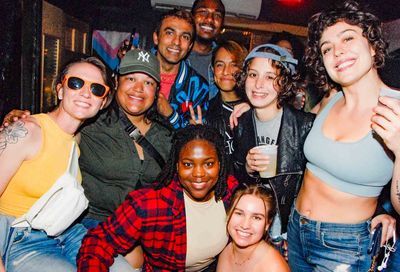What Happened at the Supreme Court Today, and Why It Matters
Today, without comment, the U.S. Supreme Court denied the request of Log Cabin Republicans for the court to dissolve the stay pending appeal in Log Cabin Republicans v. United States entered by the U.S. Court of Appeals for the Ninth Circuit, which put a stop to U.S. District Court Judge Virginia Phillips’s injunction halting the enforcement of “Don’t Ask, Don’t Tell” worldwide.
What?
In “plain English,” the Supreme Court refused to stop the enforcement of DADT while the merits of the LCR case are being considered by the Ninth Circuit.
This was not a surprising ruling, as the Supreme Court is loathe to involve itself with such procedural decisions when the merits of the case are still being considered by a lower court. It has happened, but it is rare. It would be all the more unusual here, in that a decision effectively would stop the enforcement of a law while the validity of that law is being considered by a lower court.
That said, it was the latter note in the curt’s short order that could turn out to have been quite a significant development for the long-term prospects of the case.
“Justice Kagan took no part in the consideration or decision of this application,” the order read.
Unfortunately, because of the way that the Supreme Court justices handle recusals, it is not clear the impact of this decision. The justices do not explain why they choose to recuse themselves, so it also is not clear the specific reason for Elena Kagan’s decision not to participate in the consideration of the stay request.
While solicitor general, and as Kagan detailed during her Supreme Court confirmation hearings, she was involved in the decision not to appeal the Ninth Circuit’s decision in Witt v. Dep’t of the Air Force and the decision to oppose the Supreme Court taking an appeal of the First Circuit’s decision in Cook v. Gates — a case taken to the Supreme Court by James Pietrangelo II, who later handcuffed himself to the White House gate alongside Dan Choi. Kagan made it clear that she had significant involvement in these cases.
What was not clear at the time was whether Kagan believed that involvement would force her to recuse herself in other DADT cases. And, today’s action doesn’t necessarily mean — although it does suggest — that Kagan will recuse herself should the case reach the Supreme Court on the merits. (This is a deep-in-the-weeds discussion that I might get back to at a later point.)
If she does recuse herself, however, the court — unlike many other courts — would not replace her with another judge. The court, instead, would consider the case with only eight justices. If the court splits 4-4 in that situation, the lower court ruling would stand. Meaning, if the Ninth Circuit upholds DADT on appeal, the law would stand. If the Ninth Circuit strikes it down, it would continue to be unconstitutional. More importantly, though, in that situation, the court’s decision does not apply nationwide and the impact of LCR’s case would only apply to the Ninth Circuit.
This is the point at which the questions about the worldwide nature of Phillips’s injunction become very important. If her worldwide injunction is upheld by the Ninth Circuit, then — in practice — it doesn’t matter if the Ninth Circuit ruling is expanded to include the entire country — because it already is worldwide. If, however, the Ninth Circuit decides that Phillips was right the DADT is unconstitutional but was wrong to issue such an expansive injunction, then the ultimate holding of the case could be limited in a way that would be very difficult for the military to enforce.
Of course, a repeal of the DADT law in the lame-duck session of Congress could, eventually, render this case — and this whole convoluted discussion — moot.
Read the (brief) Supreme Court order: Log-Cabin-applic-denied-11-12-10.pdf
Support Metro Weekly’s Journalism
These are challenging times for news organizations. And yet it’s crucial we stay active and provide vital resources and information to both our local readers and the world. So won’t you please take a moment and consider supporting Metro Weekly with a membership? For as little as $5 a month, you can help ensure Metro Weekly magazine and MetroWeekly.com remain free, viable resources as we provide the best, most diverse, culturally-resonant LGBTQ coverage in both the D.C. region and around the world. Memberships come with exclusive perks and discounts, your own personal digital delivery of each week’s magazine (and an archive), access to our Member's Lounge when it launches this fall, and exclusive members-only items like Metro Weekly Membership Mugs and Tote Bags! Check out all our membership levels here and please join us today!























